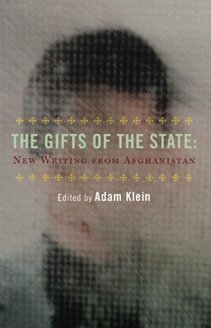Publisher: Dzanc Books
Price: $14.95 paperback, $7.99 ebook
Link: Buy Here
You'd think I would choose an uplifting book for such a depressing month as February (it's cold where I am!). Not so fast. We're in the thick of winter's threads, days of cold and grayness weaving endlessly, but I guess you could look at things this way: I picked a book that makes it seem like life ain't so bad anyway.
I really respect what Adam Klein did with this collection of short stories. He took a group of Afghan students in Kabul and asked them to find an authentic voice of fiction for Afghanistan. As Klein says in the introduction, fiction is not at the forefront of Afghan concerns, so it doesn't yet get the attention it deserves.
This collection is unique because it provides us with Afghan voices. This is a chance to hear from people who grew up in Afghanistan through its erratically violent political tides, who can tell these important stories in a way that an outsider cannot. The stories have been written first-hand in English, so neither are we seeing these words through the filter of a translator. (Of course, one could argue that a truly "authentic" Afghan voice would be writing in its native tongue, but let's consider who the audience is for this book. Isn't it important that Americans - who have occupied their land since 2001 - pick this up to understand the heart within this country?)
This collection of varying stories provides something a novel cannot: a broad scope. Afghanistan has seen occupations by communist Russia, Islamists, the Taliban, and America. It has been plagued by guerrilla warfare since the 60s. But that is just the political history. We must not forget the people who suffered through it, the ones who had to make crucial choices for the sake of their families, the ones who still wanted love and peace and happiness. What was it like for Afghanis to find out about 9/11 from the sound of a forbidden radio? What was it like to look up to a father who joined the mujahideen to fight communists? What was it like to avenge a sister's rape and murder? What was it like to guide US soldiers through unpredictable terrain? What was it like to run a forbidden bookstore, or feel lust, or play a forbidden rabab, during Taliban rule?
The writing itself doesn't have the innovativeness of David Foster Wallace or the lyricism of Chimamanda Ngozi Adichie. But that's not the point of this book, I don't think. The content and voices are what matters. It opened my eyes to things I never thought about. It put me in shoes I've never walked in before. Isn't that what a book is for?

 RSS Feed
RSS Feed